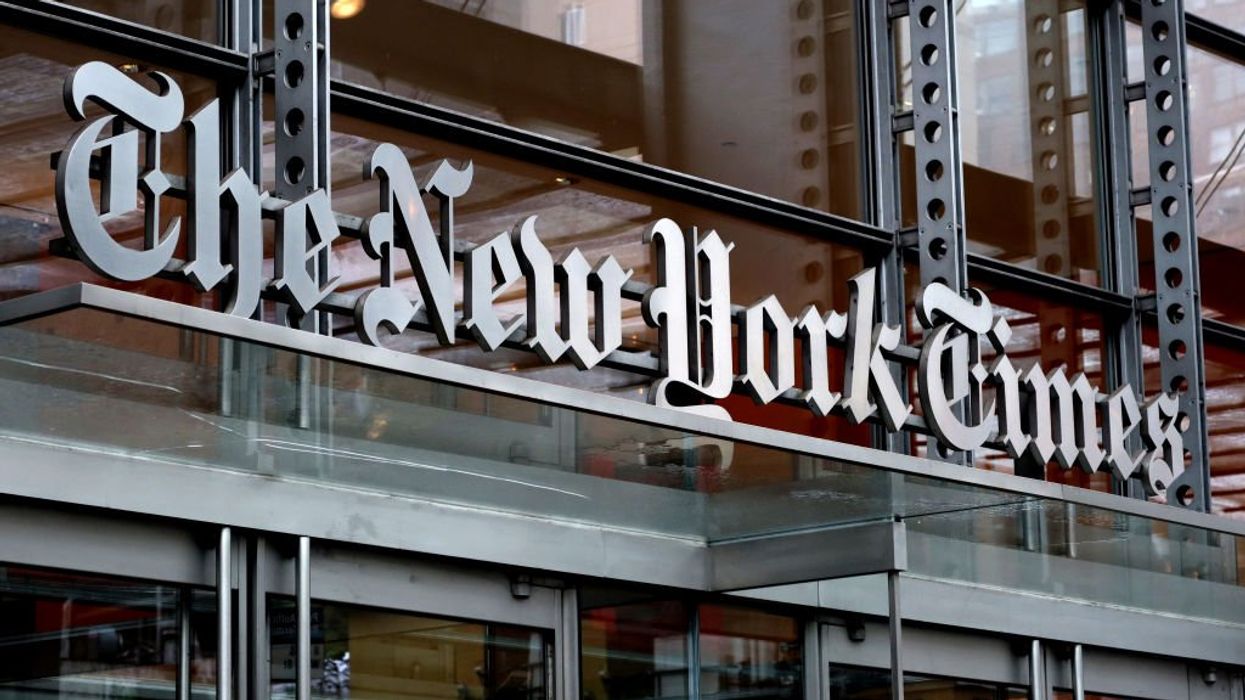
Photo by Gary Hershorn/Getty Images

An introspective op-ed in the New York Times has questioned cultural elitism in policies and social norms that seek change for others, but not for those graduating from the country's elite institutions and populating newsrooms.
"Members of our class are always publicly speaking out for the marginalized, but somehow we always end up building systems that serve ourselves," the piece by writer David Brooks stated.
The article, titled "What if We’re the Bad Guys Here?" cites the modern "social order" as one that "sorts and excludes people on the basis of the quality that we possess most: academic achievement."
Despite this, it's noted that more than half of the New York Times and Wall Street Journal staff writers attended one of the 29 most elite universities in the United States. Just 0.8% of college students across the country graduate from such schools.
"We've taken over whole professions and locked everybody else out," the author wrote.
The article correctly points out how much of the journalist class professes doctrine that doesn't really affect them, nor do they operate by its tenets.
Multicultural and diversity are good for everyone else, yet author Brooks even states that his "class" chooses to "segregate" itself into metro areas such as San Francisco, D.C., and Austin, Texas. He further solidified this point by pointing to President Biden winning just 500 counties in 2020, compared to Donald Trump's more than 2,500.
"Armed with all kinds of economic, cultural and political power, we support policies that help ourselves," the author stated, while mentioning that manufacturing jobs shipped overseas will not affect his life, nor will open borders.
"Open immigration makes our service staff cheaper, but new, less-educated immigrants aren’t likely to put downward pressure on our wages."
Perhaps most telling is the admission that woke language policing is used as a way to "exclude others."
"Using words like 'problematic,' 'cisgender,' 'Latinx' and 'intersectional' is a sure sign that you’ve got cultural capital coming out of your ears," the New York Times writer points out. "Meanwhile, members of the less-educated classes have to walk on eggshells because they never know when we’ve changed the usage rules so that something that was sayable five years ago now gets you fired."
Despite the admission that stances on college admissions, immigration, and sectioning one's self off in an classist bubble all exist in a vacuum of hypocrisy, the confessions of guilt still stream with a level of elitism.
Descriptions of "our class" and "less-educated classes" are used to describe differences in political positions, with the author calling himself as a "card-carrying member" of his "class," who still "basically trust[s] the legal system and the neutral arbiters of justice."
A final statement reveals a paradoxical duality of leftist thinking: Trump is evil, but our beliefs caused it.
"Trump is a monster in the way we’ve all been saying for years and deserves to go to prison ... but the real question is: When will we stop behaving in ways that make Trumpism inevitable?"
Like Blaze News? Bypass the censors, sign up for our newsletters, and get stories like this direct to your inbox. Sign up here!
Andrew Chapados